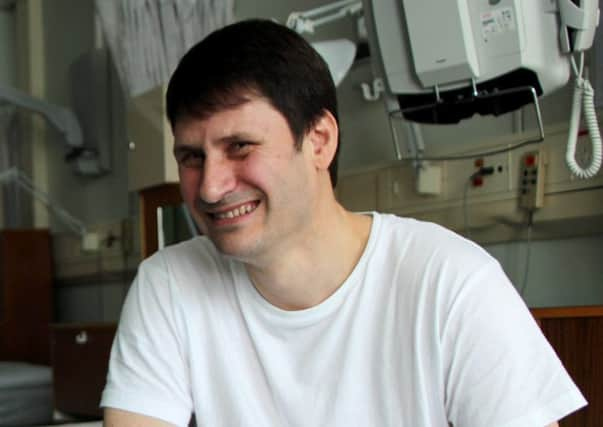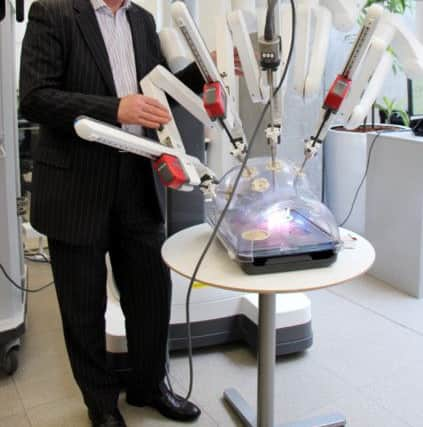Patient tells of recovery after surgery by robot


NHS Grampian unveiled the Robotic-Assisted Surgical System (Rass) last week, with the first patients to go under then knife already on the mend.
The machine, which is operated by a surgeon, mimics a human hand and can perform minimally invasive surgery with fewer of the side-effects of a major operation.
Advertisement
Hide AdAdvertisement
Hide AdSo far the Rass has been used to carry out operations on three patients.


Mark Smith, 52, is only the second person in Scotland to have his prostate removed by the robot, after it became cancerous.
The casino croupier is now almost fully recovered following the five-hour operation which took place last Thursday.
He was diagnosed in April and is delighted with his “fantastic recovery”.
He said: “The robot is less invasive – once the rod is actually into the area it doesn’t move again and they pass drill pieces through the tube.
“A human being would be in and out, which obviously is more of a problem.
“Rass is only just starting here but I’d say it was definitely the way to go. The person feels an awful lot better an awful lot quicker and they seriously know what they’re doing with these robots now.”
Advertisement
Hide AdAdvertisement
Hide AdNHS chiefs hope the new method of surgery will allow patients to recover faster and spare them the side-effects of a major operation.
Cancer charity UCAN led the £2.5 million fundraising campaign to bring the Rass to Aberdeen.
The charity wanted to ensure that patients across Scotland have access to the most advanced surgical technology.
The machine is controlled remotely by the surgeon, who sits a few feet away and watches greatly magnified 3D high-definition video images of the operation on a screen.
The system has numerous benefits over traditional “open” surgery, including faster recovery times, less pain following an operation, less blood loss, shorter hospital stays and speedier operating times.
There are more than 40 systems in England and hundreds throughout Europe and the rest of the world, but none in Scotland until now.
The campaign to get the machine in Aberdeen received support from Aberdeen and Manchester United legend Sir Alex Ferguson, a group of Aberdeen businessmen, and hundreds of others across the country who helped raise cash for the cause.
Justine Royle, consultant urological surgeon at Aberdeen Royal Infirmary, hailed the machine as a breakthrough for Scottish medicine.
Advertisement
Hide AdAdvertisement
Hide AdShe said: “About 20 or 30 years ago, this type of surgery was performed as an open procedure.
“The recovery in hospital would be around a week to 10 days.
“They would be at high risk of needing a blood transfusion and there were often problems after the operations.”